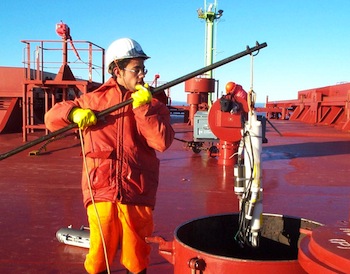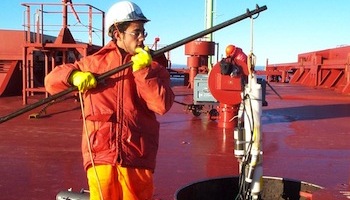
By monitoring the temperature, salinity and communities of organisms present in ballast water, researchers are learning about the factors that influences the risk of invasive species hitching a ride on trans-oceanic voyages. (Photo credit: Nathalie Simard, Fisheries and Oceans Canada)
Many invasive species – e.g. zebra mussels – hitch a ride across oceans in ships’ ballast water, but a new study shows that some trips may pose more risk than others.
Researchers sampled ballast water each day as ships crossed the ocean and discovered that invasive species are more likely to survive a shorter trans-Atlantic journey than a longer trans-Pacific one. They also found that the practice of exchanging ballast water mid-ocean, which is meant to get rid of invasive species, can sometimes have the opposite effect by introducing new species or re-enforcing the numbers of those already present.
More effective methods would be to treat ballast water through chlorination, filtration, or deoxygenation.
Original research paper published in the Proceedings of the Royal Society B: Biological Sciences on December 2, 2014.
Names and affiliations of selected authors
